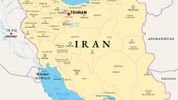Qlik, Tableau and a raft of agile BI & Analytics apps and platforms tools offer a general data analytics lens through which to view and analyse data. Add in Self-Service BI and they address the need of users and personas across an organisation to find and share insights to help make and execute better decisions. An army of "savvy business and operational analysts" to augment data scientists, BI developers doing the heavy lifting.
A gap has appeared and is widening however"where" aspect of data has been under-utilised and requires an enterprise strength geospatial analytics lens through which enhanced location intelligence analysis can be actioned. This is driven by the explosive growth of:-
- The
- Smartphones & tablets
- Machine sensors
- IoT apps
- Big Data Analytics
Organisations cannot afford to just plot and visualise location data. It needs to be combined with the readily analysed data:
- What?
- When
- Who?
- How?
- Why?
Customers, suppliers, stakeholders
- people on the move ordering, buying, paying, socialising, driving, communicating and living life through their phones & tablets.
Physical assets
with machine sensors collecting data in real-time and/or batches
- Aircraft
- Engines, motors, telemetry
- Cars, vans, trucks and trailers
- Robots
- Wind-turbines, solar panels, electricity generating stations
Combining the location with all other data adds up to better insights, better decisions, better performance. In other words competitive advantage.
New Location Intelligence vendors will become the new Tableau, the new Qlik, the new Domo. But as always its best to not throw out the baby with the bathwater.
That's why it is good to see this co-operative joining of Qlik and CARTO to add location intelligence analytics to the formidable Qlik capabilities.
Eighty percent of a business’s data contains a location component that is often overlooked. However, this trend is starting to change thanks to professionals using Qlik Sense to reimagine methods of data analysis with location intelligence. Instead of understanding business intelligence tools as beefed up spreadsheets, companies like Qlik have excelled at raising the bar on data filtering and analysis. Qlik users can create widget dashboards that filter and automatically update datasets in response to new analyses. Qlik, like CARTO, encourages posing location-specific questions to existing data to pinpoint holistic answers that can be put into action immediately.
 unknownx500
unknownx500






